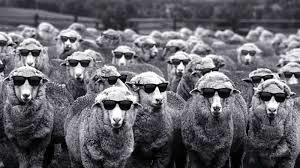
Gratitude for our Common Home
From a distance the world looks blue and green
And the snow-capped mountains white
From a distance the ocean meets the stream
And the eagle takes to flight.
People of a certain age will recognize these words as lyrics to a song by Bette Midler that became a major hit in 1990.
As the song progresses, you understand that what is seen from a distance is a mirage. The reality is obvious when it comes to our common home and its inhabitants.
A whale washed up on a beach in the Philippines recently, according to a recent story on National Public Radio. When a marine biologist drove to the scene he found that the whale’s stomach was “full of plastic — nothing but nonstop plastic. It was compact to the point that its stomach was literally as hard as a baseball.” He believes that the animal had been suffering for months or even a year or more.
Plastic
Among the 88 pounds of plastic were 16 rice sacks — similar to potato sacks — and plastic bags from grocery chains.
“Within the last 10 years, we have recovered 61 whales and dolphins just within the Davao Gulf,” he said. “Of them, 57 have died due to man — whether they ingested plastic or fishing nets or other waste, or gotten caught in pollution — and four were pregnant.”
Warming of the earth’s polls are radically reducing the number of polar bears. The number of caribou in polar regions has dropped 70 percent in the last 20 years. Glaciers are melting at a dramatic rate, placing the world’s coastal areas at risk of flooding.
And what in the physical world is more important than the air we breathe? A recent story in USA Today cited a report by the International Energy Agency saying that “power plants fueled by coal emitted their highest level of carbon dioxide on record.
A New Record
As a result of higher energy consumption, carbon dioxide emissions rose 1.7 percent last year and hit a new record,” the report says.
China, India and the United States account for 85 percent of the increase in emissions. “The total amount of global emissions in 2018 was 33.1 billion tons, the highest on record.”
With all the talk about global warming and air and water pollution, you would think that the trend would be in the opposite direction. Problem is, it’s been mostly talk. Although many of us give lip service to the idea of preserving our common home, few of us show real interest. Unless it affects us directly, we really don’t care that much, and we are slow to understand how it affects us directly.
So what has this got to do with the search for God? Environmental concern may be a blind spot that interferes with the search. How can we claim an interest in a loving Creator and show disinterest or disrespect for creation? How can we search for God and be ungrateful for God’s gifts?
That’s the perspective of Pope Francis, who has been reviled for speaking out about the environment and the economy. For Francis, and anyone who genuinely searches for God, these issues are inseparable from faith.
A Truth We Choose to Ignore
Besides the lack of a sense of gratitude and the resulting rejection of the obligation to preserve the earth and its resources, Pope Francis has identified another truth that people would like to ignore: the deteriorating environment’s disproportionate effect on the poor. The gravest consequences of global warming are felt by marginalized people in the poorest countries. If we strive to be God-like, we must have a special place in our hearts for the poor.
“We need to see that what is at stake is our own dignity,” he wrote in Laudato Si, his encyclical on the environment and global warming. “Leaving an inhabitable planet to future generations is, first and foremost, up to us. The issue is one which dramatically affects us, for it has to do with the ultimate meaning of our earthly sojourn.”
So how does concern translate into action? Don’t waste resources, including food. Don’t pollute land, water or sky. Recycle. Take care of the earth and its plants and animals. Advocate for the environment and include its care among the issues you use to decide who to vote for.
And don’t forget to thank God for our common home.



